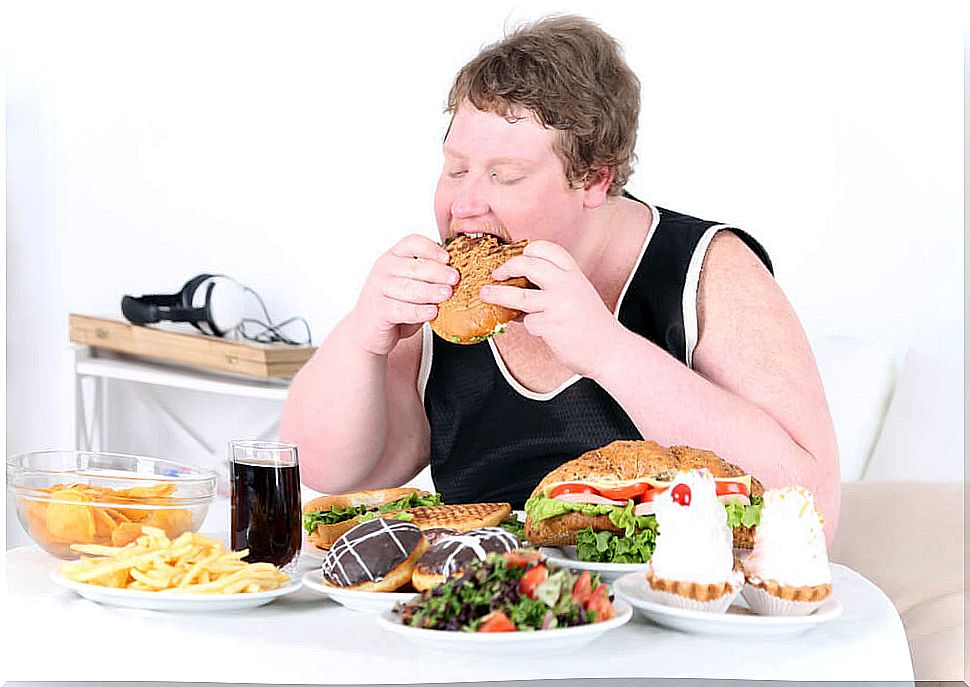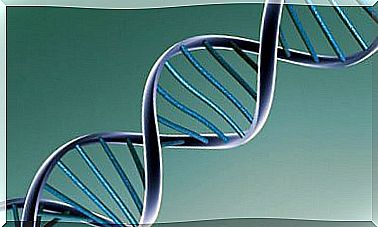Binge Eating Disorder: Everything You Need To Know
The physical and psychological consequences of binge eating disorder can affect a patient’s quality of life. It is important to detect it and treat it promptly to avoid serious complications.

The binge eating disorder is one of the eating disorder whose incidence has increased in recent years. It is very common among the obese population, but it can affect anyone, even during childhood.
Almost everyone has binged on food, for example at festive activities. However, in some people this habit becomes recurrent, to the point of developing compulsive behavior that is very difficult to control.
Like anorexia or bulimia, this eating disorder is a serious illness that requires medical and psychological attention. Therefore, it is essential to know how it originates and what are the symptoms that allow it to be identified. Find out!
What is Binge Eating Disorder?
The main characteristic of binge eating disorder is the recurrent consumption of large amounts of food, to the point that it is difficult to stop eating. The behaviors have some similarities to bulimia nervosa, but they are not the same.

The big difference is that a person with binge eating disorder does not perform compensatory purges (induced vomiting, use of laxatives, excessive exercise, etc.), as bulimic patients do. Also, you inevitably develop overweight and obesity. In this way, it carries other health effects: diabetes, hypertension, high cholesterol, among other chronic diseases.
Causes of binge eating disorder
There is no exact cause to explain binge eating disorder, but there are several factors related to its development. Depression is one of the most common, since most patients suffer from depressive disorder. Genetics, prolonged diets, and some hormonal imbalances are also linked. Similarly, other possible triggers are:
- Family background
- Self esteem issues
- Prolonged exposure to stressful situations
- Estrogen hormone therapy
- Impulsiveness or alcohol abuse
Binge Eating Disorder Symptoms

Most patients with binge eating disorder are overweight or obese; Despite this, a thin person can develop it. Behavioral symptoms that can be used to identify this eating disorder include:
- Strong desire to eat large amounts of food in a specific period of time, for example two hours.
- Feeling of guilt or anguish when recognizing that eating behavior is out of control.
- Eat even when there is no appetite.
- Swallowing food without first chewing it well or eating too quickly.
- Eating big binges on food until you feel too full.
- Feeling depressed, angry, or ashamed about eating habits.
- Access miracle diets and have frequent weight changes (up and down).
- Losing your sex drive.
- Show signs of low self-esteem.
Complications
Overeating has many health consequences, especially when it leads to obesity. Therefore, when binge eating disorder is not controlled , it triggers some complications that affect quality of life.
- Job performance issues
- Social isolation
- Joint problems
- Heart diseases
- Type 2 diabetes
- Gastroesophageal reflux
- Gallstones
- Sleep-related breathing disorders
- Anxiety crisis
- Bipolar disorder
Diagnosis
To diagnose this condition, the doctor performs a physical and psychological evaluation of the patient that includes an analysis of their eating habits. After suspecting the disorder, he may suggest other tests, such as blood and urine tests, to verify the consequences.
Binge Eating Disorder Treatment
Treatment for binge eating disorder is focused on reducing the constant urge to overeat. If necessary, it also includes guidelines to help the person lose weight and reduce depression.

Since overeating produces feelings of shame, low self-esteem and other negative emotions, therapy includes exercises and healthy habits that are intended to facilitate behavior control and help reestablish eating patterns.
Psychotherapy for binge eating disorder
- Cognitive-behavioral therapy: to control the problems that trigger binge-eating episodes.
- Interpersonal psychotherapy: to improve self-esteem and facilitate social relationships.
- Dialectical Behavioral Therapy: focused on strategies to mitigate stress and emotions that trigger compulsive behavior.
Medicines
Lisdexamfetamine dimesylate (Vyvanse) , a drug used to treat attention deficit hyperactivity disorder, has been approved as an alternative to treat binge eating disorder. However, options such as the anticonvulsant topiramate (Topamax) and antidepressants are also used.
Healthy nutrition
Once the symptoms are controlled, a nutritionist can adapt the diet to the needs of the affected person. It is important to avoid designed diet plans, since in these cases there are special nutritional requirements.
Binge Eating Disorder: Final Comments
In short, binge eating disorder causes a person to eat excessively, constantly. Being a trigger for obesity and heart disease, it must be intervened by health professionals. In addition, to overcome it, family and social support is required.









